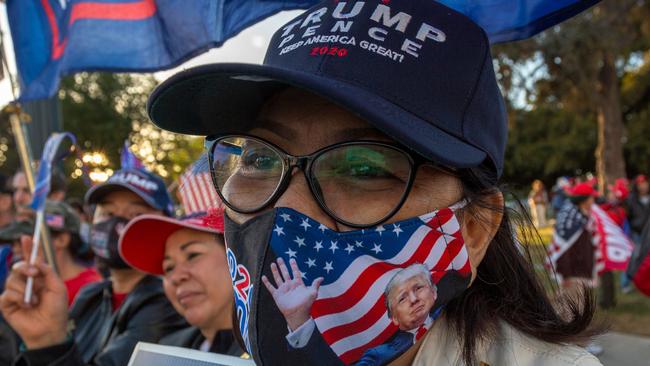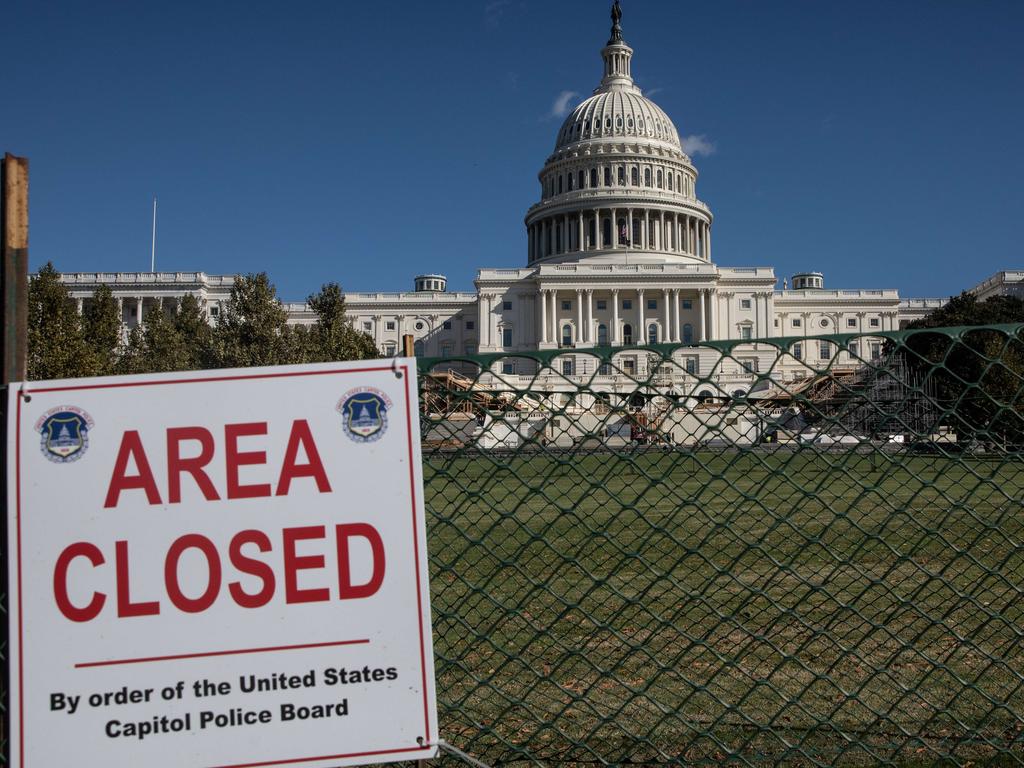Focus on Donald Trump’s votes, not Joe Biden’s

The world will soon be fully united around a target of net zero emissions by 2050. Scott Morrison will either have to join in or take a lump of coal into the UN General Assembly and hold it up while saying: “This is coal. Don’t be afraid, don’t be scared,” as he did in the Australian Parliament in February 2017. Not his finest moment.
On China, Morrison was able to persuade himself he wasn’t being as nasty to our biggest customer as Mr Trump as, which might have been true, so maybe it would be OK, and also he was aligning Australia with its most important ally.
Unfortunately for Morrison the US Trade Representative was doing a deal with Xi Jinping at the same time as Trump tweeted insults at him.
So part of the reason China is cancelling Australian exports, apart from being annoyed, is that they have to increase imports from the United States as part of the Phase One trade deal, and that means buying less from Australia. In other words, it seems Trump had a plan – bringing back jobs to Make America Great Again. Morrison did not.
It leads to a more fundamental lesson from the US election, and it is perhaps more an issue for the left of centre parties that embraced globalisation at the expense of their working-class roots.
Trump’s loss, not GOP’s
The Republican Party didn’t lose the election, Trump did, because of his shocking mishandling of the pandemic. Joe Biden wisely turned it into the key election issue, and without that he probably would have lost.
The Republicans picked up seats in the House, seem likely to keep control of the Senate, and, as a clincher, an amazing 71 million people actually voted for the appalling Donald Trump.
This election was not a repudiation of Republican policies or behaviour, or of their new self-identity as a “working-class party”.
The Liberal and National Parties in Australia, and their supporters in the media, are trying to appeal to the working classes, but only through climate change, not trade. That is, by supporting fossil fuel industry workers against the so-called “green-left elites,” but not manufacturing workers against Chinese imports.
The issue is broadening now, with the internet replacing media jobs and artificial intelligence and robots replacing virtually all jobs.
But it’s the conservatives who complain about elites now, including tech billionaires, not progressives and lefties, and that strikes a chord with all the people who feel left out and unelite.
Of course, the idea that conservative parties are really working-class organisations trying to bring down elites is plainly ridiculous. But that doesn’t matter: politics is just marketing these days, and in Trump’s hands, straight-out lies.
Danger for Labor
What the Australian conservatives have not yet done is repudiate globalisation and free trade, as the Trump Republicans have done, along with the Brexit conservatives in the UK and the right-wing anti-immigration parties in Europe.
That’s to their credit, and a reflection of the lingering sophistication of the Australian electorate, but it means the Labor Party may be in serious danger.
China’s entry into the WTO in 2001 and the rush by the world’s retailers and brand owners to source cheaper product from there to expand their margins ended up disenfranchising large parts of the western world’s working classes, who got no real support from their traditional left-wing political parties because they were chasing the new breed of professional urban voters who enjoyed the lower prices and who prioritised the environment.
Their disgruntlement led directly to the populist demagogue Trump. Unfortunately for the Republican Party, the man is incompetent, possibly corrupt, and a narcissist incapable of rising to the challenge presented by a pandemic. So he’s been sacked after one term.
But neither he nor the working class discontent he crystallised and rode to victory in 2016 is going away. Trump will nurture the discontent from the sidelines, either simply to make money or run again in 2024.
What all developed economy political parties, including Australia’s, have to come to terms with is not Joe Biden’s 75 million votes, but the implications of Donald Trump’s 71 million.
Dealing with climate change and COVID-19 is hard, but easy: you just have to listen to scientists and do what they say.
But dealing with the effect of globalisation and free-market capitalism - China and free trade - is just hard, partly because economics is not a science, so the answers are never clear cut, either socially or geopolitically.
Globalisation and inequality have led to unhappy, poor working classes voting for cynical conservative populists, plus the emergence of a rich, aggressive, totalitarian China that is starting to throw its weight around.
A stable global civilisation
A week ago legendary investor, Jeremy Grantham of GMO published a paper suggesting a sort of green Marshall Plan – “tens of trillions of dollars over several decades” to invest in renewable infrastructure and achieve a “stable global civilisation. If financed at negative real rates, it is the commercial bargain of all time”.
But more importantly: “Much of the spending on new infrastructure would be industrial and labour-intensive. It would have the same effect as a major onshoring of manufacturing, providing hundreds of thousands of jobs and raising wages for both skilled and unskilled labour.”
He’s right, and in fact China is already doing it with its One Belt One Road infrastructure program.
The US and Australia should see it as a Marshall Plan not only to transition the world to zero carbon, but to reconstruct not just their economies, but their politics and society. The success of the Republicans in the election shows how necessary that is.
Alan Kohler is Editor in Chief of Eureka Report






The two immediate implications for Australia of Joe Biden’s victory are obviously that the government will have to come up with a new plan for climate change and a new way to deal with China. But there is a bigger, more important one, related to the second of those. It’s about trade, and globalisation.